7 common mistakes when raising a cat

You decided welcome a cat in your house? Congratulations! In addition to being very affectionate and fun animals that will make your life happier, cats are clean pets, it is not necessary to take them out for a walk and they adapt very well to life in a flat.
Although cats are easy to maintain and care for, it is important to know some typical mistakes in their breeding to avoid unwanted behaviors. In we will explain what are the 7 most common mistakes when raising a cat to facilitate your work.
1. Think that a cat is like a dog
Unlike dogs, in the wild cats are solitary hunters, and although they can form integrated social groups with a defined hierarchy, cats are usually more independent and less hierarchical than the dogs.
Therefore, and although there are many cats more submissive and affectionate than many dogs, if you are looking for an extremely faithful pet and that shows an unconditional love and obedience it is advisable to opt for a dog, to avoid disappointment and frustrations.
On the other hand, we must not forget that when a cat seeks the company and love of its owner is because you really want this attention and because you feel comfortable with it, not because it forces your instinct or because you consider a reference figure and this is something that they value very positively the owners of cats.

2. Neglecting the education of the cat
Cats are much more complicated to educate than dogs, since they are much less hierarchical animals, as has been mentioned. Create a link with the animal It is fundamental, and for this it is important that the cat sees its owner as something positive and assimilates its presence to a pleasant state.
In many cases, taking advantage of the hierarchy’s sense of dogs, to have an educated and balanced dog, it is enough to give him just, coherent and simple orders, but the cats “must be won”.
Playing regularly with him, correcting him at the precise moment that he does something wrong with clear orders and without resorting to violence is very beneficial. Cats can also respond well to positive training, although it is usually not as easy and effective as in the case of dogs.
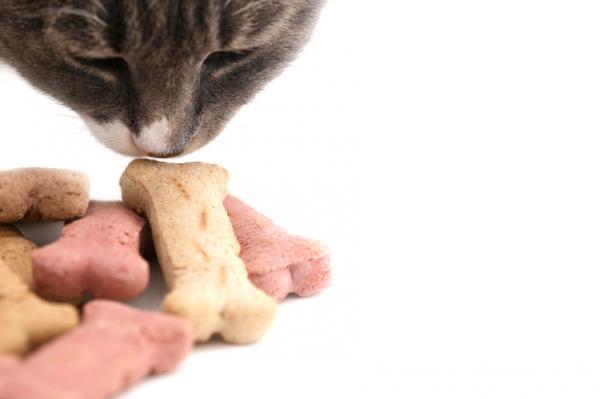
3. To welcome him when he is too young
One of the most common mistakes made when raising a cat is adopt it very soon, sometimes almost nothing else to be born, when the ideal is to do it once the weaning of the kitten has taken place naturally (from the month of life).
Although extreme care and providing adequate food (special milk for lactating cats) should not have great problems, it is beneficial to the animal’s health to be with his mother in that period, which is also the best can teach the behavior typical of their species.
On the other hand, we must not forget the importance of period of socialization [1] [2] of these animals, which occurs between the two and seven weeks of life of the animal, in which it is convenient to present the stimuli that you will know during your life so that later you do not recognize them as something new and dangerous.
That a puppy has not finished its vaccination period does not mean that it should become a “bubble cat” in the world, and that you can not invite people or animals home while the cat that lives in it is a puppy without finish vaccinating
Of course, if other animals come to the house where the kitten is, it is necessary to make sure that they are not aggressive, are not sick and are properly vaccinated and dewormed.
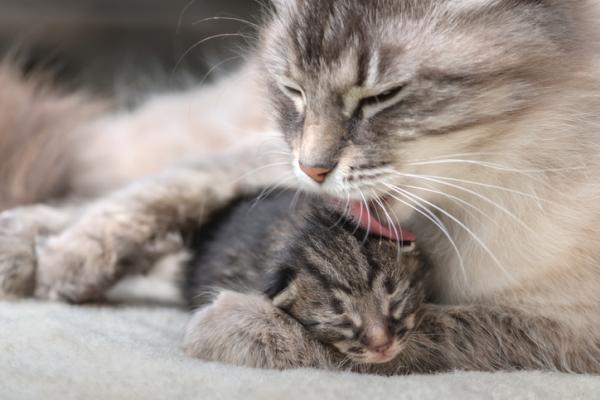
4. Do not vaccinate or deworm the cat
Another common mistake when caring for a cat is not to give it the health care it needs, thinking that since it does not leave home and eats almost exclusively, it can not get diseases or harbor parasites.
Although it is true that by not having access to the outside It is more difficult to get sick, it is also that this is not impossible, so it is better to prevent these problems.
Obviously the risk in cats living at home is not the same as in cats with access to the outside and there are vaccines that do not need to be administered in the first, therefore it is necessary to go to a veterinarian who must establish a vaccination program for cats specific to the life characteristics of each animal.
Regarding external deworming (against fleas and ticks, especially) and internal deworming (against intestinal worms), although it may be less strict than in the case of dogs, it is advisable to deworm internally each 3 months and apply a flea and tick repellent product, especially in the months of summer. Discover more about deworming in cats.
In addition, in some places the Law requires vaccinating against certain diseases and maintaining a minimum frequency in internal deworming. Thus, for example, in Spain it is currently mandatory to vaccinate rabies cats and also to deworm internally, once a year, with an effective product against Echinococcus (a type of tapeworm).
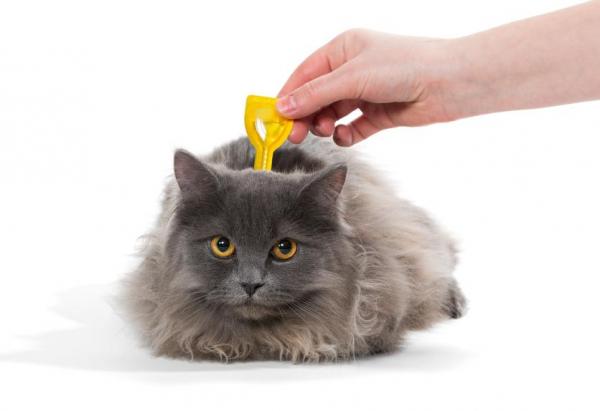
5. Do not assess the possibility of sterilizing the cat or cat
The breeding season of these animals can lead to behaviors that are not very comfortable for the owners of the cats, as well as to the health of the kittens. This season occurs in spring-summer, in which the cats (seasonal polyestrics) have jealousy of about one week long, with breaks of one or two weeks.
In cats that live inside the home, this time can last much longer because, being the lighting and the temperature of the house more or less constant, it is difficult for the organism of the animal to detect seasonal changes.
In this period, many males tend to escape when detecting a cat in heat and they can show aggressive with other males sometimes causing peels that can have serious consequences. This can be corrected in part by castrating the animal.
In the cats that have access to the outside of the house, sterilization is necessary, otherwise the owner could be in a short time with offspring as numerous as unwanted.
In addition, sterilization can prevent diseases (such as tumors of the uterus or ovaries, for example) and help to avoid behavioral problems such as urine marking.
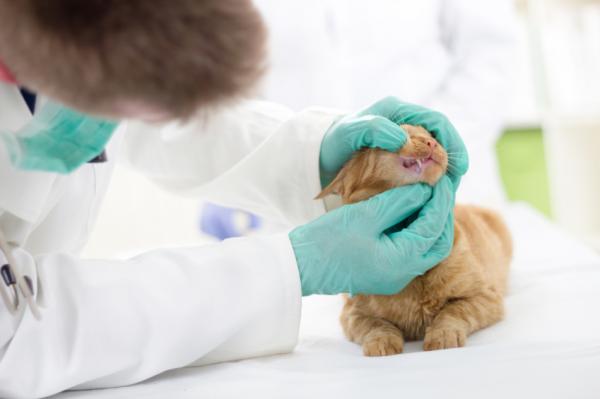
6. Do not avoid ingesting hair balls in cats
Generally, they do not usually make big mistakes in the feeding of the cats, but one of them is not to contribute a product to prevent the digestive problems caused by swallowing hair balls.
As explained in our post on the balls of hair in cats, felines are very clean animals that are groomed regularly can ingest hairballs, and this can end up causing vomiting and constipation or diarrhea.
Fortunately, there are products available in veterinary centers and specialty stores, based on malt, which are very useful. Another equally successful and more comfortable option is to buy a specific feed to prevent problems caused by hairballs.
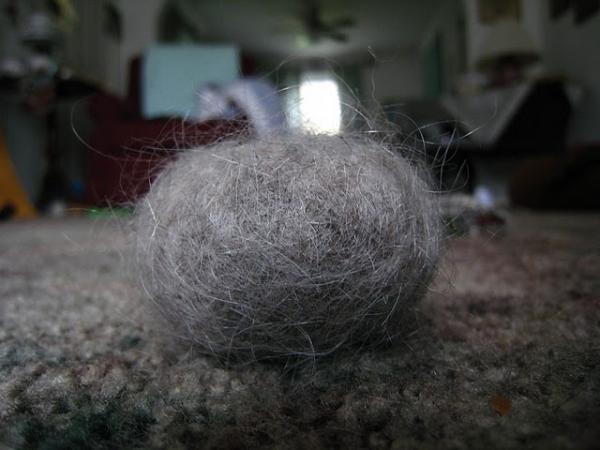
7. Overweight in castrated cats
The other mistake that can occur when raising a cat is not control your weight, especially in animals sterilized. The castrated animals tend to gain weight due to a hormonal issue, which is why it is recommended to provide a low calorie diet or a specific one for sterilized cats, which already contemplates this fact in its composition.
Anyway, even if a feed is used and “light”, too, you must measure the amount of the same that is given to the cat, following the manufacturer’s instructions, since having fewer calories the animal will eat more feed than if it were given a normal one with what will continue to gain weight.
If you want to know more about overweight in cats, we recommend you read our post about obesity in cats.
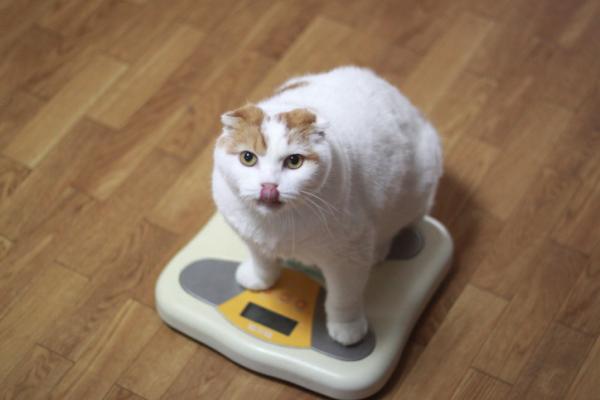
If you want to read more articles similar to 7 common mistakes when raising a cat, we recommend that you enter in our Basic Care section.


